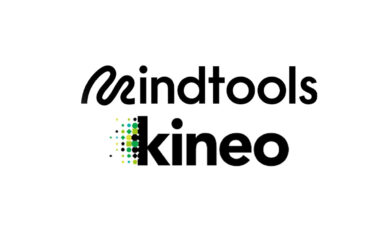Wayne Turmel is many things. A Canadian living in Las Vegas, he’s a former stand-up comic, a successful podcaster, and a novelist. But, first and foremost, Turmel is a remote leadership expert.
As such, Turmel is not afraid of getting down and dirty with the nitty-gritty of virtual meetings. In fact, he even wrote a book about it. “Meet Like You Mean It: A Leader’s Guide to Painless and Productive Virtual Meetings” is a slim volume that’s packed with practical tips and tricks.
“I just got tired of people complaining about their terrible meetings,” he explains in our Expert Interview podcast. “They would give me all kinds of reasons – they get off track, they don’t accomplish what they’re going to do, they take you away from other valuable work. I kind of went, ‘You know, they don’t have to.’”
Successful Meetings
In his book, Turmel covers everything from the format and content of your agenda to the best use of online meeting platforms.
Turmel believes agendas are the unsung heroes of successful meetings. “There’s nothing that impacts your meeting culture more than the way you handle the agenda,” he tells me. “And yet, it’s the thing that seldom gets done, or done properly.”
The Key to a Good Agenda
So what does a good agenda look like? In our interview, Turmel claims there are five key pieces.
“There’s the logistics part: when is the meeting, how long is it, how do I join? That good stuff. There’s a clearly stated purpose for the meeting: why are we meeting and why am I being asked to this? Next is the desired outcome: at the end of this meeting what are we going to have achieved? Then, what are the expectations of the participants, so that they can be properly prepared? I need you to read this document and be prepared with your questions and your suggestions.
“Then the final piece is any preparation we can possibly give participants in terms of documents, heads up, where we left off in the last meeting, so that when people show up they know why they’re there. They know what they’re supposed to achieve.”
Engagement
A small but powerful tip he shares is to put a preliminary agenda in the original meeting alert. It can be followed up with the details later, but if it’s there when participants first open the invite, the meeting gets a hefty push in the right direction.
But even if people come prepared, the meeting leader needs to keep them engaged, or this precious opportunity to collaborate and move forward turns into half an hour of personal email management on mute. What tools can help with this?
“You want to engage people visually, auditorily and kinesthetically, so webcams are immensely helpful,” Turmel says, adding the proviso that in large meetings, it’s not always practical for everyone to be visible.
Using Chat
Chat is another useful tool that “leverages web meetings above conference calls.” Teleconferences are great for extroverts, he points out, but chat suits extroverts and introverts, and everyone in between.
It works especially well for international teams. People with a different first language are often more comfortable writing English than speaking it. And, in text, accents all but disappear, minimizing the chance of misunderstanding.
Chat is equally handy for private messaging. You can text a participant to check that they’re willing and ready to contribute publicly, before calling on them.
Better yet, leaders can ask someone else to monitor the chat. “That way I’m not trying to speak, listen, remember what I’m going to say, read the chat, and write on the whiteboard all at once,” says Turmel. “Because [if I did] my head would explode.”
Listen to the full 30-minute interview with Wayne Turmel in the Mind Tools Club.
Good agendas and chat are two tools that can keep people engaged in online meetings. What are your favorites? Join the discussion below!




